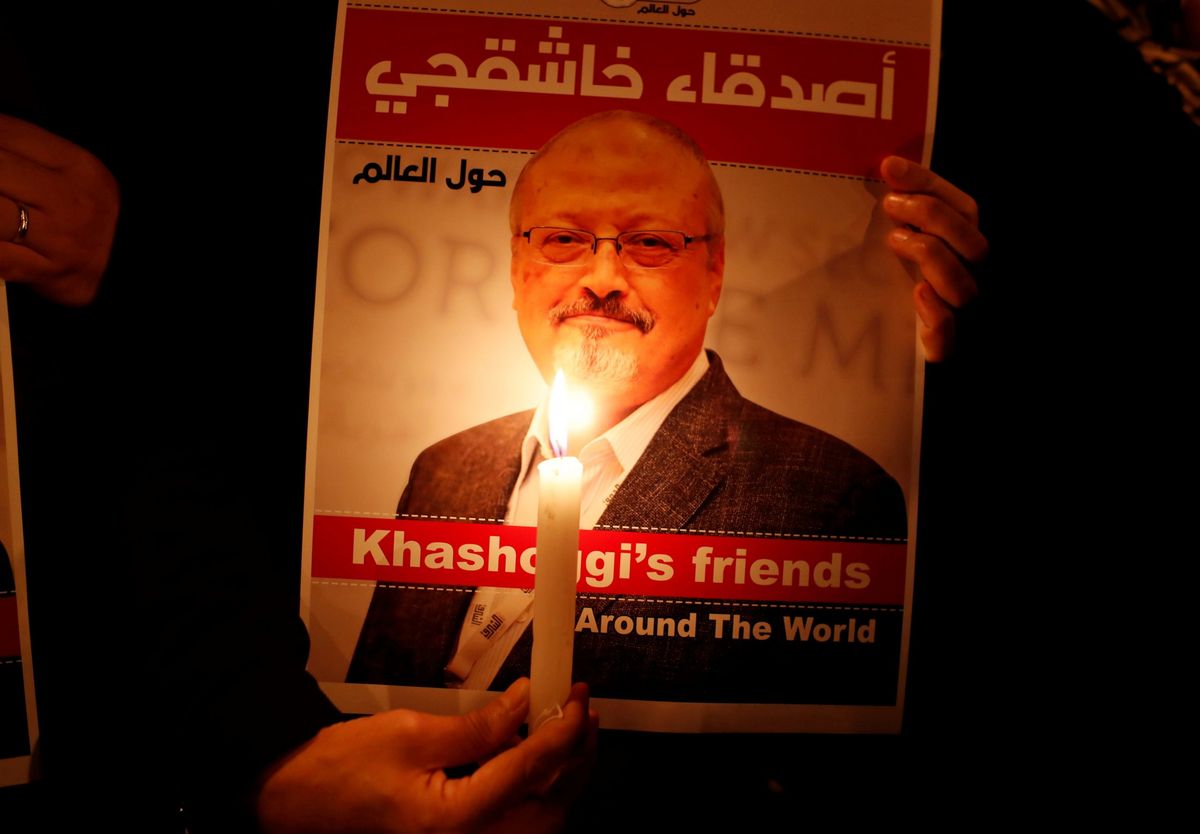Will Saudi Arabia’s Crown Prince Mohammad bin Salman be punished for the murder of Jamal Khashoggi?

A few minutes every morning is all you need.
Stay up to date on the world's Headlines and Human Stories. It's fun, it's factual, it's fluff-free.
While Biden had previously vowed to ensure MBS was punished for the murder, since the report’s release, the Biden administration has stated it will not sanction the Crown Prince.
The assassination of Saudi Arabian journalist and United States resident Jamal Khashoggi has long been tied to Crown Prince Mohammed bin Salman (commonly referred to as simply “MBS”). Since the grisly murder occurred in the Saudi consulate in Turkey in October 2018, it has been widely accepted that MBS was behind the death of Khashoggi, who had been a vocal critic of the Crown Prince.
The administration of President Donald Trump had downplayed MBS’ involvement in the murder, countering reports from US intelligence. Now, though, President Joe Biden has unclassified an intelligence report which states unequivocally, “Saudi Arabia’s Crown Prince Muhammad bin Salman approved an operation in Istanbul, Turkey to capture or kill Saudi journalist Jamal Khashoggi.”
While Biden had previously vowed to ensure MBS was punished for the murder, since the report’s release, the Biden administration has stated it will not sanction the Crown Prince. That response has angered many, especially those who see hypocrisy in Biden’s previous criticisms of Trump over the same issue.
Others, though, have defended Biden’s actions, contending that there are other ways that MBS can be punished for his role in the murder of Jamal Khashoggi.
What does the report say?
The report released in late February was entitled “Assessing the Saudi Government’s Role in the Killing of Jamal Khashoggi.” It is four pages in total and is mostly unredacted.
The report begins with an “Executive Summary” that claims MBS is directly culpable for the death of Khashoggi, who had been living in the US and working for The Washington Post under self-imposed exile from Saudi Arabia.
The justification for this conclusion is based on “the Crown Prince’s control of decisionmaking in the Kingdom, the direct involvement of a key adviser and members of Muhammad bin Salman’s protective detail in the operation, and the Crown Prince’s support for using violent measures to silence dissidents abroad, including Khashoggi.”
The summary further notes, “Since 2017, the Crown Prince has had absolute control of the Kingdom’s security and intelligence organizations, making it highly unlikely that Saudi officials would have carried out an operation of this nature without the Crown Prince’s authorization.”
While the report’s assessment is written definitively, the brief document does not provide any specific evidence. It also, at times, relies on speculative language:
“At the time of the Khashoggi murder, the Crown Prince probably fostered an environment in which aides were afraid that failure to complete assigned tasks might result in him firing or arresting them. This suggests that the aides were unlikely to question Muhammad bin Salman’s orders or undertake sensitive actions without his consent.”
Nonetheless, the report is unequivocal in its assessment, stating that a 15-member Saudi team had arrived in Istanbul on October 2, 2018, the day Khashoggi was assassinated. Among the team were seven members of MBS’ personal protective detail and others who were directly tied to the Crown Prince’s loyal associates.
“The Crown Prince viewed Khashoggi as a threat to the Kingdom,” the report claims, “and broadly supported using violent measures if necessary to silence him. Although Saudi officials had pre-planned an unspecified operation against Khashoggi we do not know how far in advance Saudi officials decided to harm him.”
Jamal Khashoggi’s assassination
The 59-year-old Khashoggi was killed in the Saudi consulate in Istanbul and apparently dismembered with the use of a bone saw. At the time of his death, Khashoggi had been in Turkey and was visiting the consulate to get the paperwork necessary for him to marry his fiancée.
The Saudi government initially denied that the death occurred in its consulate, but audio evidence ultimately undermined those denials. In late 2019, Saudi Arabia found five men guilty of the murder of Khashoggi and three others guilty of covering up the crime.
In the wake of the assassination, then-President Donald Trump questioned the reports of the US intelligence community, releasing a statement in November 2018 in which he said, “we may never know all of the facts surrounding the murder of Mr. Jamal Khashoggi.” In that statement, Trump said he had no intention of sanctioning MBS because Saudi Arabia was a “great ally.”
Trump was widely criticized at the time, with people saying he was siding with authoritarian dictators over his country’s own press. In 2020, reporter Bob Woodward published a book of interviews with Trump in which the former president bragged about protecting MBS, saying, “I saved his ass” and adding “I was able to get Congress to leave him alone. I was able to get them to stop.”
Biden’s response to Khashoggi’s murder
Trump had blocked the release of the report that came out in February. Now that the intelligence report has been released, though, Biden is facing criticism for refusing to punish the Crown Prince. Despite a global outcry for retribution, the Biden administration will reportedly not sanction MBS.
Following the report’s release, the administration instituted the “Khashoggi ban,” which puts visa restrictions on 76 Saudis who have had a role in oppressing activists and journalists. There are many in the US, however, who do not feel that goes far enough.
Critics of the president’s lack of direct action against MBS are especially incensed because Biden had campaigned on a promise of ensuring that the Crown Prince was held accountable for the murder. During a Democratic debate in November 2019, Biden vowed, “We are going to make them pay the price and make them, in fact, the pariah that they are.”
Now, it appears the Biden administration is changing its tune. Echoing sentiments expressed in Trump’s statement from November 2018, Secretary of State Antony Blinken defended the lack of sanctions against MBS, saying, “The relationship with Saudi Arabia is bigger than any one individual.”
As reported by The Washington Post, the Biden administration struggled with how to punish MBS. Since the Crown Prince is essentially in control of the entire Saudi government, “untangling Mohammed’s assets for freezing from those of the kingdom was seen as virtually impossible.” Sanctioning MBS would therefore risk unraveling a vital relationship in the Middle East.
Which is not to say the Biden administration has given up on punishing MBS altogether. It has been reported that Biden is considering ending the sales of offensive military arms to Saudi Arabia, while also pressuring the country to end its war in Yemen. This would offer at least some contrast with the Trump administration, which finalized multiple arms deals in the Middle East in its final months.
As Trump said during his presidency, though, arms deals are a substantial source of revenue for the US. Ending such deals could be a financial risk for an administration that inherited a country facing economic hardship, especially as it just passed a US$1.9 trillion stimulus package.
Have a tip or story? Get in touch with our reporters at tips@themilsource.com




Comments ()